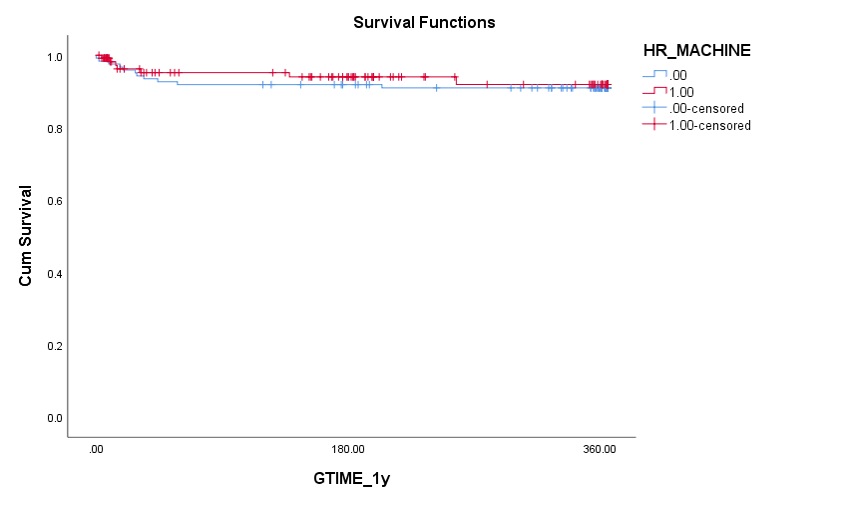Does Machine Perfusion of Heart for Donation After Cardiac Death (DCD) Transplantation Affect Other Organ Outcomes?
R. Misawa1, K. Okumura2, H. Sogawa1, G. Veillette1, A. Dhand3, R. Bodin4, D. C. Wolf4, B. Partiula4, D. John1, T. Diflo5, S. Nishida1
1Department of Surgery, Transplant, Westchester Medical Center/New York Medical College, Valhalla, NY, 2Surgery, Westchester Medical Center/New York Medical College, Valhalla, NY, 3Department of Medicine, Westchester Medical Center/New York Medical College, Valhalla, NY, 4Medicine, Westchester Medical Center/New York Medical College, Valhalla, NY, 5Westchester Medical Center/New York Medical College, Valhalla, NY
Meeting: 2022 American Transplant Congress
Abstract number: 230
Keywords: Donors, non-heart-beating, Heart preservation, Liver transplantation, Machine preservation
Topic: Clinical Science » Liver » 59 - Liver: Expanding the Donor Pool* (Liver: MELD Allocation / Donor Issues)
Session Information
Session Name: Expanding the Donor Pool (MELD Allocation/Donor Issues)
Session Type: Rapid Fire Oral Abstract
Date: Monday, June 6, 2022
Session Time: 3:30pm-5:00pm
 Presentation Time: 4:20pm-4:30pm
Presentation Time: 4:20pm-4:30pm
Location: Hynes Room 312
*Purpose: Machine perfusion of heart for donation after cardiac death (DCD) transplants is being increasingly utilized. Initial protocol of the heart machine perfusion for the DCD donor, that was developed for investigational purposes, required the heart transplant team to collect 1 to1.5 liters of blood from the donor after cardiac death. Transplant teams, other than heart team, must hold perfusion until blood collection is completed to avoid hyperkalemia associated with infusion of potassium enriched preservation solution. This wait-time leads to delayed perfusion to other organs, thereby adding 60 seconds directly to warm ischemic time. The purpose of our study was to identify the effects of this delayed perfusion on the outcomes of liver and kidney transplantation.
*Methods: We analyzed data from the United Network for Organ Sharing (UNOS) between 2020-2021 among 2 groups: DCD donor with cardiac procurement with perfusion pump (HP) and DCD donor without cardiac procurement with perfusion pump (non-HP). We compared the short-term outcomes of liver and kidney transplant between two groups. Propensity matching was used to analyze the data.
*Results: Total of 1512 cases from DCD liver donors were performed during the study period. Among them, heart machine perfusion was used for 123 (8.1%) cases. Total of 8929 cases from DCD kidney donors were performed and among them, heart machine perfusion was used for 386 (4.3%) cases. There was no statistically significant difference in one year graft and patient survival for both liver and kidney transplant (Figure 1 and 2) between two groups. Also, no statistical difference in delayed graft function rate in kidney transplant recipients was noted.
*Conclusions: Use of heart machine perfusion adds approximately extra 60 seconds to warm ischemic time to non-heart organs. This delay in perfusion was not associated with any difference in one year graft and patient survival for both liver and kidney transplant. However, long term outcomes include biliary complications need to be assessed
To cite this abstract in AMA style:
Misawa R, Okumura K, Sogawa H, Veillette G, Dhand A, Bodin R, Wolf DC, Partiula B, John D, Diflo T, Nishida S. Does Machine Perfusion of Heart for Donation After Cardiac Death (DCD) Transplantation Affect Other Organ Outcomes? [abstract]. Am J Transplant. 2022; 22 (suppl 3). https://atcmeetingabstracts.com/abstract/does-machine-perfusion-of-heart-for-donation-after-cardiac-death-dcd-transplantation-affect-other-organ-outcomes/. Accessed January 10, 2026.« Back to 2022 American Transplant Congress

